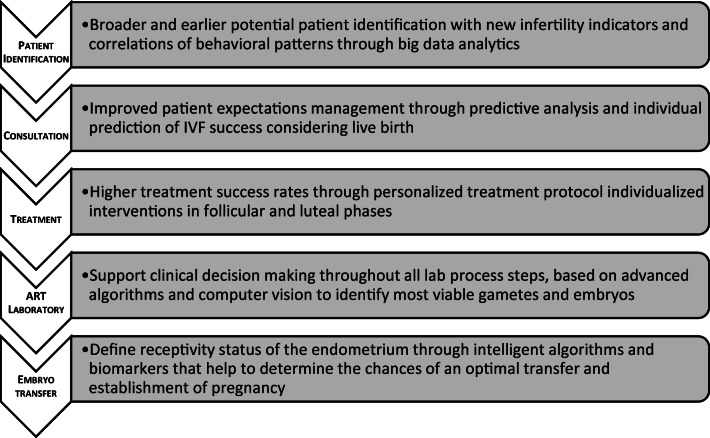
Introduction
Artificial Intelligence (AI) has the potential to reconfigure the field of fertility treatment, according to a recent research article. The study explores how AI technologies can address the challenges associated with subjective assessments in clinical and embryological decision-making during infertility treatment.The research highlights the importance of developing and validating algorithms in a proper manner, including adhering to regulatory requirements and ensuring the availability of high-quality data. The consensus among a group of fertility experts is that AI algorithms, if properly developed, can standardize, automate, and improve in vitro fertilization (IVF) outcomes for the benefit of patients. However, collaboration between AI developers and healthcare professionals is crucial to make this a reality. This article will explore AI’s role in fertility treatment whilst improving outcomes.
AI’s benefits to Fertility Treatment
The advancements in computer power and the availability of data have led to the rise of predictive algorithms in various medical fields. While the concept of AI dates back to the early twentieth century, it was not until 2012 that machine learning (ML) gained widespread acceptance as a form of AI. A survey conducted among health professionals revealed that 72% of them are interested in implementing AI in their work, considering it as an extension rather than the extinction of professional capacity in healthcare.
In recent years, there has been a significant increase in the number of AI publications in medicine and health, making it one of the most promising fields of study in health science. The American Society for Reproductive Biology (ASRM) and the European Society for Human Reproduction and Embryology (ESHRE) have already reported on various applications of machine learning in fertility treatment. These applications range from sperm identification and morphology to predicting live births following embryo transfer.

Figure 1: Summary scheme of how AI can improve IVF treatments throughout the process
The potential benefits of AI in fertility treatment are vast. Data-driven solutions can help detect early indicators of infertility, allowing for earlier identification of potential patients and precise treatment strategies. AI can also assist in defining the best stimulation protocol for each patient and adjusting drugs and doses in real-time based on biomarkers. In the embryology and andrology laboratories, AI can evaluate gamete viability, embryo implantation potential, and uterine receptivity status, leading to improved pregnancy outcomes and reduced time to achieve a healthy live birth.
Conclusion
The researchers emphasize the need for continuous innovation in the fertility space to improve outcomes for patients. Objectivity must be brought into the decision-making process at every step of assisted reproductive technology (ART) to determine the most suitable treatment. The use of algorithms and AI can reduce subjectivity and improve consistency in critical areas of ART. AI’s role in fertility treatment is an important trajectory to explore further.
Reference url






